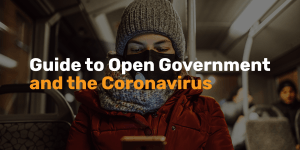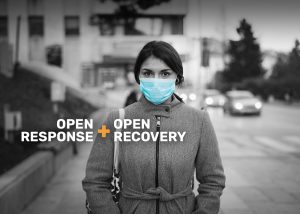Lessons from Reformers: Nigeria Enshrines Beneficial Ownership Transparency in Federal Law
This case study is part of OGP’s Domestic Resource Mobilization and Economic Recovery in Africa. Read the full paper and other Lessons from Reformers case studies here.
 Domestic Resource Mobilization and Economic Recovery in Africa Explore eight ways open government reform can help African countries recover from the immediate crisis and restore their progress towards achieving the Sustainable Development GoalsOGP countries are experimenting with open government innovations to accelerate progress on the Sustainable Development Goals, particularly SDG 16+ which includes peaceful, just and inclusive societies....
Domestic Resource Mobilization and Economic Recovery in Africa Explore eight ways open government reform can help African countries recover from the immediate crisis and restore their progress towards achieving the Sustainable Development GoalsOGP countries are experimenting with open government innovations to accelerate progress on the Sustainable Development Goals, particularly SDG 16+ which includes peaceful, just and inclusive societies.... Hidden company and property ownership is a big contributor to the nearly US$1 trillion that leaves developing countries illicitly each year. Out of that US$1 trillion, an estimated US$15.7 billion of illicit financial flows pass through the Nigerian financial system annually. Civil society leaders know that these losses could be drastically reduced if company ownership information were made public. Journalists and civil society actors would then be able to investigate companies and land holdings and link them to politically exposed persons. If the resulting losses were retained, they could go a long way in delivering crucial public services and improving life for Nigerian citizens.
Nigeria has had legal provisions in place that partly address beneficial ownershipDisclosing beneficial owners — those who ultimately control or profit from a business — is essential for combating corruption, stemming illicit financial flows, and fighting tax evasion. Technical... More transparencyAccording to OGP’s Articles of Governance, transparency occurs when “government-held information (including on activities and decisions) is open, comprehensive, timely, freely available to the pub... More since 2004. However, the company register remained inaccessible to the public, and many of the names cited are not real owners. There is no mechanism to verify owners and no sanctions for falsifying information. The important information about the beneficial owner remains secret, unverified, or missing.
Nigeria announced efforts to change this at the UK-hosted Anti-Corruption Summit in 2016, where the country committed to joining OGP and to setting up a national public registry of the beneficial owners of companies. Nigeria also included these actions as a commitment in its 2017 OGP action plan.
Establishing the registry required legislative changes that, after stalling in 2019, passed in Parliament, thanks to the hard work of a coalition of advocacy organizations. The changes were signed into law in August 2020 as part of the Companies and Allied Matters Act. Now, reformers in government, civil society, and the private sectorGovernments are working to open private sector practices as well — including through beneficial ownership transparency, open contracting, and regulating environmental standards. Technical specificat... More must turn their attention to the next challenge: implementation.
No comments yet
Related Content

Domestic Resource Mobilization and Economic Recovery in Africa
Explore eight ways open government reform can help African countries recover from the immediate crisis and restore their progress towards achieving the Sustainable Development Goals.

A Guide to Open Government and the Coronavirus
This guide is a one-stop shop for the best current resources on how open government projects and approaches can support tackling the pandemic.

Open Response + Open Recovery
Our community’s fundamental values of accountability, transparency, inclusivity, and responsiveness are vital as we move through COVID-19 response to recovery. Find resources, events and examples from OGP and partners.


Leave a Reply